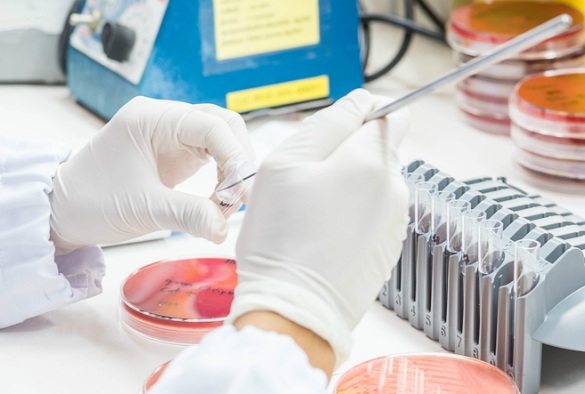Researchers from the University of Liverpool have joined a new consortium to help in the development of novel antibacterial agents to battle antimicrobial resistance in gram-negative bacteria.
Antimicrobial resistance is a global and serious threat to human health that is making a growing number of infections harder to treat, and, according to the World Health Organisation, is the cause of 25,000 deaths each year in European Union alone.
Gram negative bacteria are a group of medically important bacteria that can cause severe infections in patients. They are increasingly resistant to multiple antibiotics and in some cases untreatable. The emergence of MDR Gram-negative bacteria is a serious and growing threat to public health.
Supported by the Innovative Medicine Initiative (IMI), the new GNA NOW (Gram-Negative Antibiotic NOW) project, led by Evotec SE and managed by Lygature, will work on the development of novel antibacterial agents to battle antimicrobial resistance in gram-negative bacteria. The multi-stakeholder consortium includes nine other partners from academia, industry and SMEs.
Collectively, the GNA NOW members will progress three programmes in parallel with the goal of bringing one through completion of Phase I studies and one reaching Investigational New Drug (IND) stage and/or up to two programmes reaching clinical development candidate stage, by 2024.
Liverpool lead Dr Shampa Das, Senior Lecturer in Antimicrobial Pharmacodynamics, said: “A critical aspect of preventing emergence of resistance is to ensure that antibiotics are dosed correctly. We will use experimental infection models with mathematical computation to explore the relationship between the amount of drug given, antimicrobial effect and prevention of resistance emergence and use this to optimise the clinical dose regimen.”
Dr Cord Dohrmann, Chief Scientific Officer of Evotec, added: “Bacterial infections are a growing threat around the globe and are driving the need for innovative therapeutics with new mechanisms of action. GNA NOW gives us the opportunity to join forces with leading institutions of both the public and the private sector across Europe to develop new gram-negative antibacterial agents as quickly and as efficiently as possible.”
